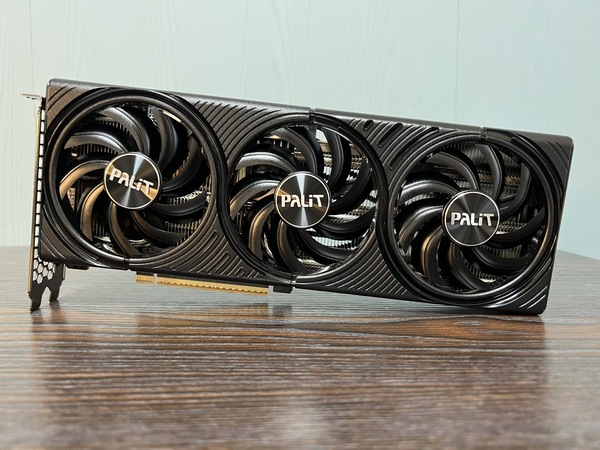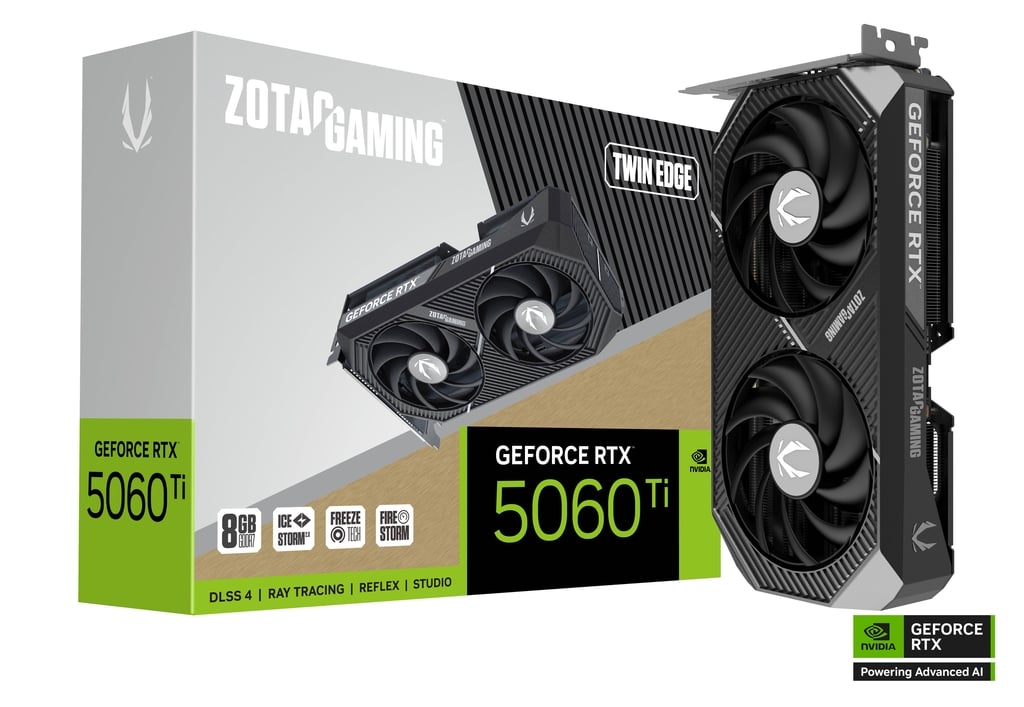The long-awaited price drop for the GeForce RTX 5060 Ti 16GB is finally here — at least in some markets. While global prices have started dipping below the $500 mark, it’s still fluctuating depending on the region. Just three months ago, this GPU was priced close to $580, but now you can find some listings for under $550, especially for the ASUS Prime OC Edition.
So, is it finally worth picking up, or should you keep waiting? Let’s take a closer look.
Design and Build Quality RTX 5060 Ti 16GB

Despite being part of ASUS’s entry-level lineup, the RTX 5060 Ti 16GB still carries a solid and premium look. The card features a triple-fan Axial-tech cooling system, designed to improve static pressure without increasing fan speed, keeping noise levels impressively low.
Each fan also supports 0dB technology, meaning they stop spinning when temperatures fall below 55°C, allowing completely silent operation during light tasks. The fans use dual ball bearings, which are rated to last twice as long as standard sleeve bearings.
The backplate is made of metal with wide ventilation cutouts for better heat dissipation — ensuring the card runs cool and avoids thermal throttling even during long gaming or rendering sessions.
On the top side, ASUS keeps things traditional with a 6+2 pin PCIe power connector, meaning you won’t need the newer 12VHPWR connector. There’s also a dual-BIOS switch for toggling between “Performance” and “Quiet” modes depending on your setup.
At around 30 cm in length and taking up 2.5 PCIe slots, the card isn’t overly bulky. Weighing roughly 900 grams, it’s light enough to install without a GPU support bracket — quite impressive for a triple-fan card.
Specifications
The RTX 5060 Ti 16GB is based on NVIDIA’s latest Blackwell architecture, built on TSMC’s 4nm process. It packs 4,608 CUDA cores, a 6% increase from its predecessor, the RTX 4060 Ti.
AI performance gets a significant leap with 144 fifth-generation Tensor Cores, capable of up to 772 TOPS, nearly double that of the previous generation. Meanwhile, its fourth-generation RT Cores (36 units) deliver faster and more efficient ray tracing performance.
Clock speeds are slightly boosted over the Founders Edition — reaching up to 2,617 MHz. The GPU also supports PCIe 5.0 x8, though it remains backward-compatible with older PCIe generations.
Perhaps the biggest upgrade is the 16GB GDDR7 memory, offering massive improvements in bandwidth and memory speed over the previous GDDR6 models. The TDP is rated at 180W, with NVIDIA recommending at least a 550W PSU, though using a slightly higher-capacity unit is ideal for headroom and stability.
Test Setup RTX 5060 Ti 16GB
All benchmarks were conducted on a PC optimized for both gaming and content creation:
- CPU: Intel Core i5-13600K
- Motherboard: ASUS TUF Gaming B760 Plus Wi-Fi
- RAM: T-Force Delta RGB DDR5 32GB (6400MHz, Dual Channel)
- Storage: T-Force G70 Pro 1TB NVMe SSD
- PSU: FSP Hydro G Pro 1000W
- Cooling: 240mm AIO Liquid Cooler
- Case: DeepCool CC560
Benchmark and Overclocking
We began with synthetic benchmarks using 3DMark. A light automatic overclock using ASUS GPU Tweak 3 yielded only a 2% performance bump — not much, considering temperatures rose by 3°C and power draw by 16W.
However, with manual tuning — power target at 110%, boost clock maxed, and memory clock increased by +2000 MHz — the gains became much more noticeable. Performance improved by up to 10% in 3DMark Time Spy Extreme, with stable thermals and noise levels.
For everyday use, this overclock profile remains safe and stable.
Productivity Performance
In real-world workloads, the RTX 5060 Ti 16GB performs surprisingly well.
- AI Image Generation (A1111/Stable Diffusion): Generated a 1024×1024 image in about 3.4 seconds.
- LLM Text Generation (LM Studio): About 5 tokens per second faster than the MSI Gaming Trio variant.
- 3D Rendering (Blender Barbershop Scene): Completed in roughly 2 minutes using CUDA and 1 minute faster using OptiX.
Video Rendering (Premiere Pro 4K, 10 min): Finished in around 4 minutes, slightly slower than MSI’s variant but still efficient.
Gaming Performance RTX 5060 Ti 16GB
Although the RTX 5060 Ti targets 1080p gaming, it handles 1440p (2K) and even 4K surprisingly well, especially with DLSS 4 and Frame Generation enabled.
| Game | Resolution | Average FPS | Settings |
| DOOM: The Dark Ages | 4K | 60 FPS | Ultra Nightmare + Ray Tracing |
| 2K | 100+ FPS | Ultra Nightmare + Ray Tracing | |
| Monster Hunter Wilds | 4K | 115 FPS | Ultra + RT High |
| 2K | 180 FPS | Ultra + RT High | |
| Black Myth: Wukong | 4K | 55 FPS | Cinematic + RT Very High |
| 2K | 145 FPS | Cinematic + RT Very High | |
| Cyberpunk 2077 | 4K | 60 FPS | Path Tracing Ultra |
| 2K | 100+ FPS | Path Tracing Ultra | |
| Horizon Zero Dawn | 4K | 90 FPS | Ultimate |
| 2K | 150 FPS | Ultimate | |
| Forza Horizon 5 | 4K | 100 FPS | Extreme + RT High |
| 2K | 165 FPS | Extreme + RT High | |
| Dota 2 | 4K | 140 FPS | Max |
| 2K | 170+ FPS | Max | |
| CS2 | 4K | 280 FPS | Low |
| 2K | 400+ FPS | Low |
Final Verdict
The GeForce RTX 5060 Ti 16GB delivers a strong balance of performance, efficiency, and future-proofing. Its large VRAM capacity makes it an excellent choice for both gamers and creators looking beyond 1080p.
That said, at around $550, it still feels a bit overpriced for what’s meant to be a 60-class GPU. If prices drop closer to $480, it becomes a much stronger recommendation.
For now, if you’re upgrading from an older card like the GTX 1650 or RTX 2060, this GPU offers a meaningful performance boost — especially for modern AAA games, 2K resolution, and AI or video workloads.
